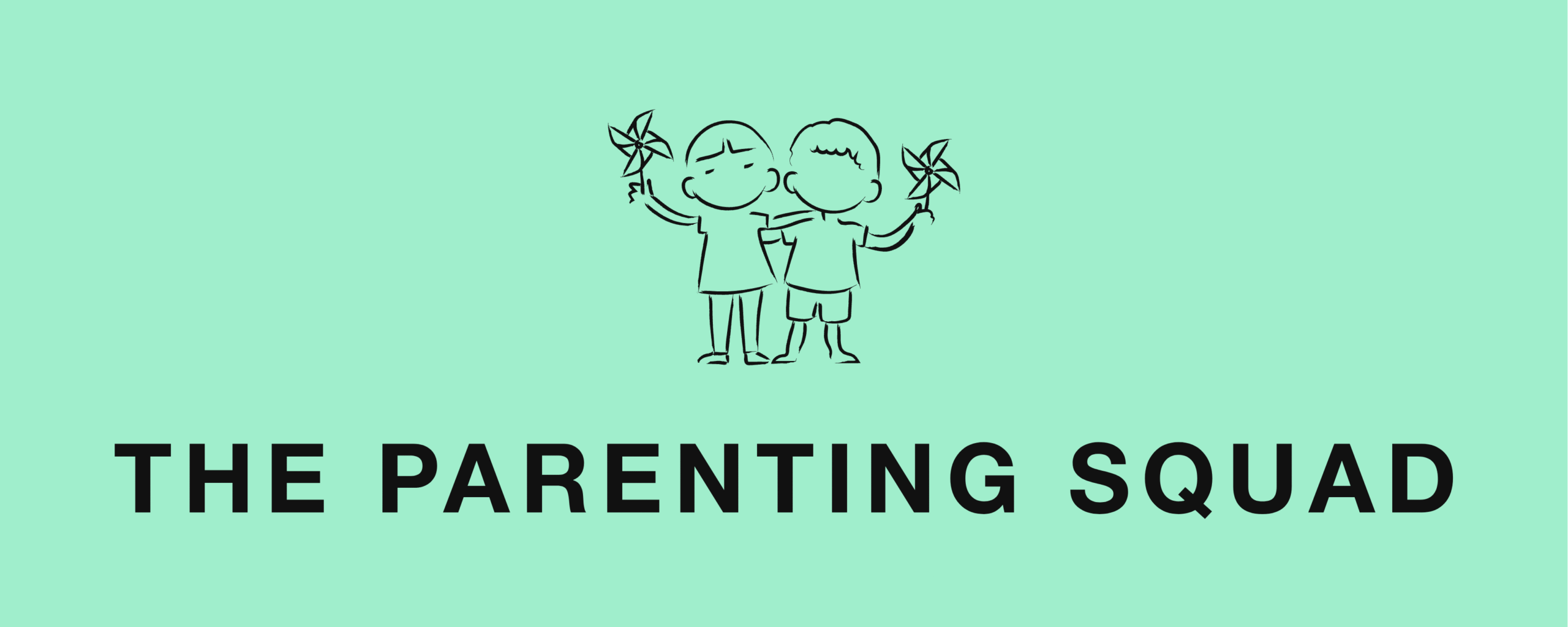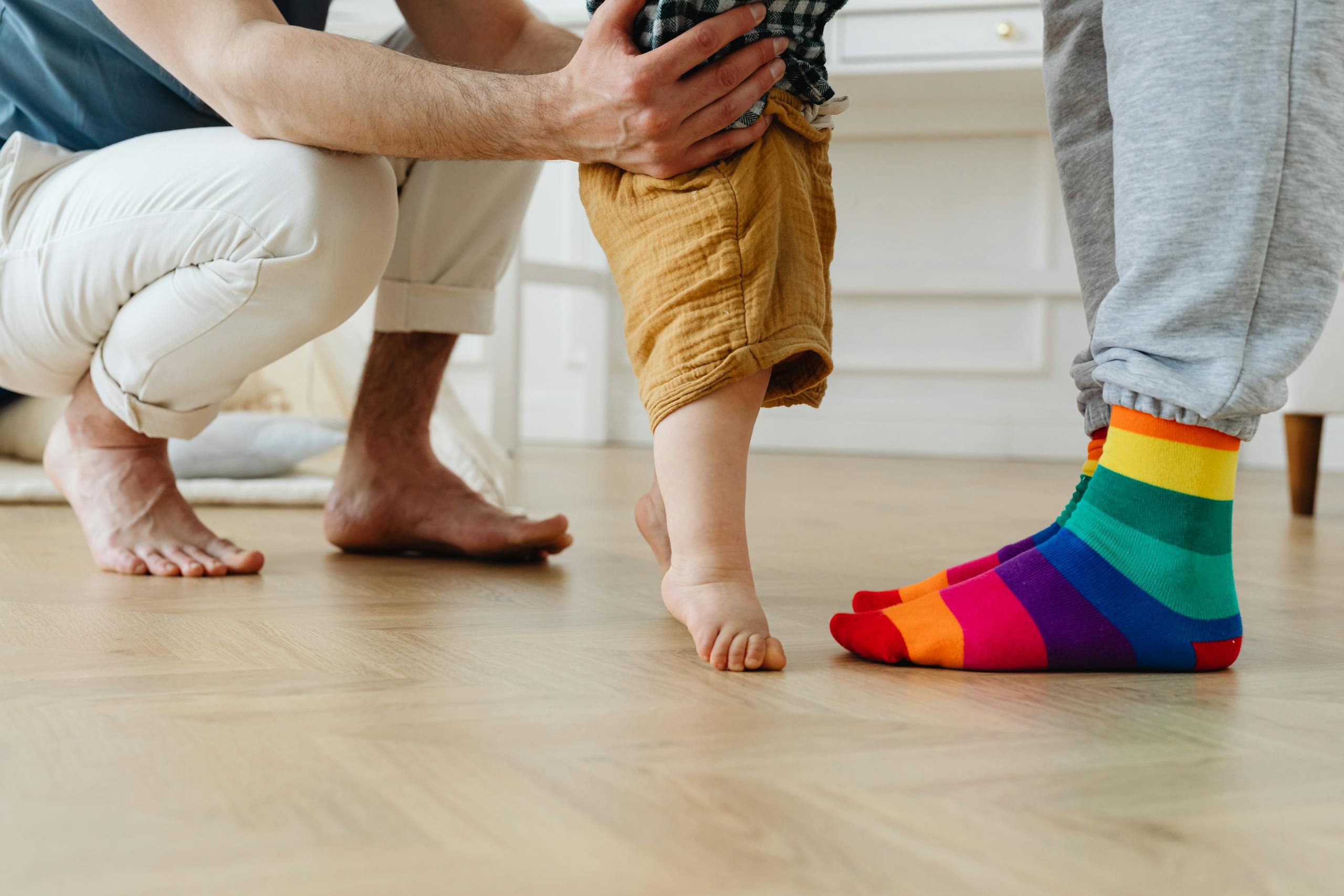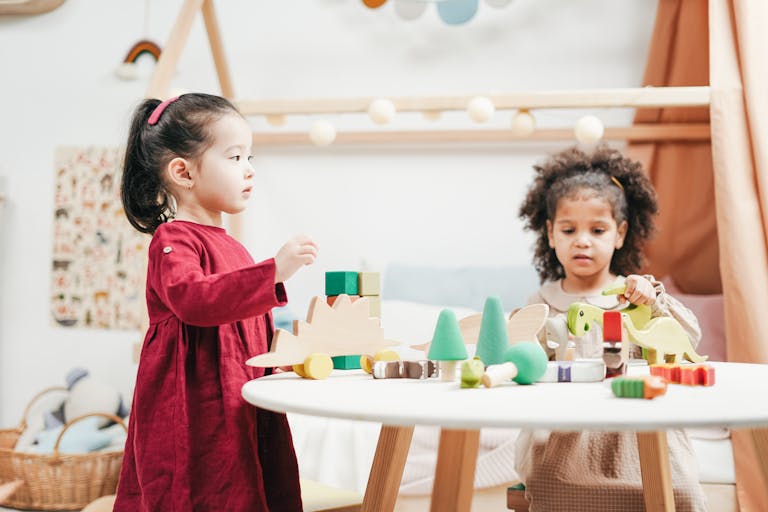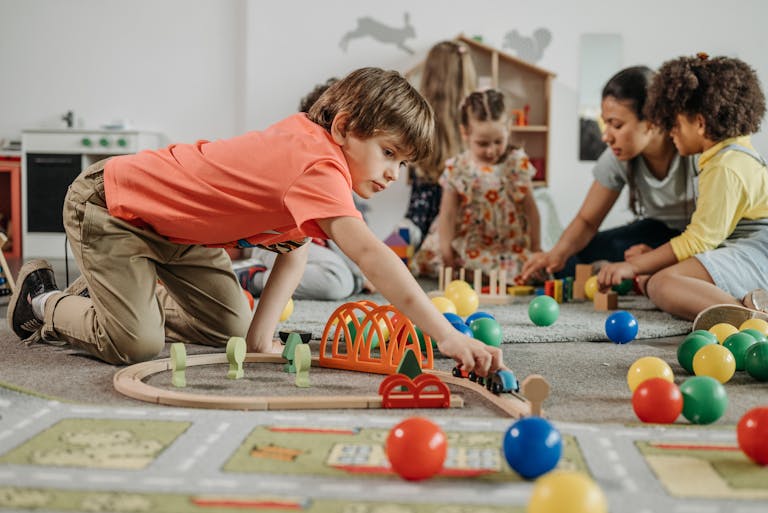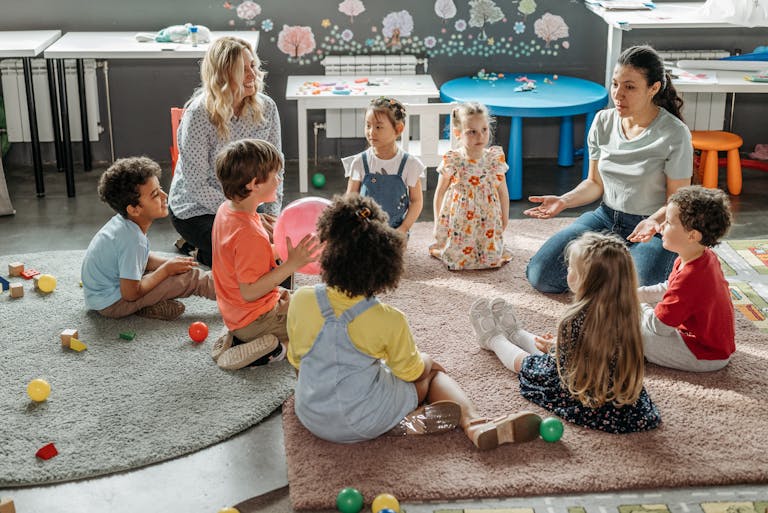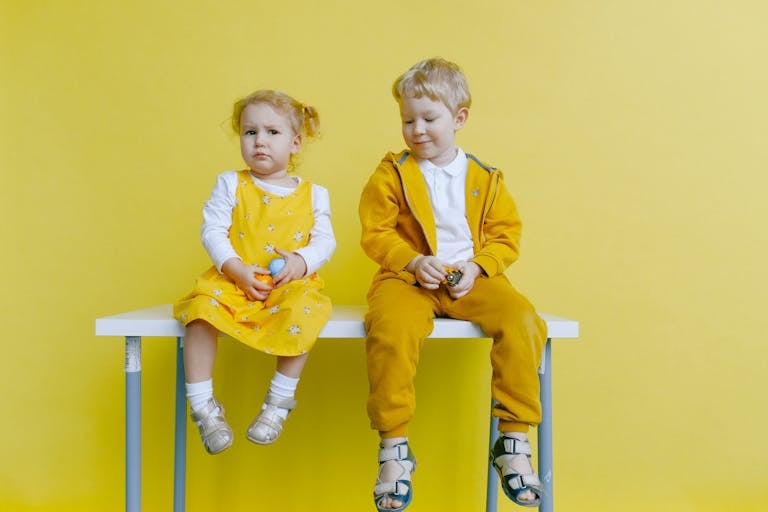From First Steps to First Words: Early Childhood and Development Milestones Every Parent Should Know
Ever wondered when your little one will say their first “mama” or take those wobbly first steps? Trust me, you’re not alone in obsessing over every tiny progression (or lack thereof) your child makes. One minute you’re celebrating because they rolled over, and the next you’re Googling “why isn’t my 7-month-old crawling yet?” at 2 AM.
Here’s the thing about parenting: every single milestone feels monumental when it’s your kid. That first smile? Academy Award-worthy performance. Their first word? Better than Shakespeare. And when they’re a little late to the party? Cue the worry spiral that would make Olympic gymnasts jealous.
But here’s your friendly reminder that children develop at their own pace, and slight variations are not only normal—they’re expected. Developmental timelines and milestones can vary widely among children, so don’t be alarmed if your child’s progress differs. Some kids are early walkers and late talkers. Others might surprise you by skipping crawling entirely and going straight to walking (the overachievers of the baby world).
This guide will walk you through the key developmental milestones for children from birth to age 5, covering motor skills, language development, social behaviors, and cognitive growth. Think of it as your roadmap through early childhood—not a rigid timeline, but a helpful compass to understand what’s coming next and how you can support your child.
What Are Developmental Milestones?
Developmental milestones are those exciting behaviors or physical skills that most children can do by a certain age. They’re like nature’s way of showing us that our little humans are growing and learning exactly as they should be.
Understanding developmental milestones is crucial for parents and caregivers to support children’s growth, well-being, and lifelong success.
These milestones typically fall into four main categories:
Motor Skills are physical movements—both the big ones (like walking or jumping) and the small ones (like picking up Cheerios with a pincer grip that would make a surgeon proud).
Language Skills cover everything from understanding what you’re saying to eventually talking back (and boy, will they talk back). This includes receptive language (what they understand) and expressive language (what they can communicate).
Cognitive Development is all about problem-solving, memory, and learning. It’s watching your toddler figure out how to stack blocks or realize that you still exist when you disappear behind your hands during peek-a-boo.
Social & Emotional Behaviors involve children interacting with others and managing their feelings. From that first social smile to learning to share toys (the ultimate test of human civilization), these skills form the foundation for all future relationships.
Age-by-Age Breakdown of Early Childhood Development Milestones
0–6 Months: The Foundation Stage
During these first six months, your infant is basically a tiny scientist conducting experiments on the world around them, usually involving putting everything in their mouth.
Motor Skills at this stage include rolling over (both ways), lifting their head during tummy time (even if they hate every second of it), and bringing their hands to their mouth. Many babies also sit with support and reach for objects that catch their attention.
Language Skills begin with those heart-melting coos and babbles that sound like they’re having deep philosophical conversations with the ceiling fan. Laughter typically emerges around 3-4 months, and they’ll start making different sounds for different needs, because crying comes in multiple flavors. Early interactions and responsive communication are key for infants, as these experiences lay the foundation for future language and social development.
Social Behavior includes that magical first real smile (not the gas-induced ones, though those are adorable, too). Babies will begin to recognize familiar faces and might even start showing preferences for certain people. Some babies also begin to enjoy simple games like peek-a-boo.
Cognitive Development shows up when they start following objects with their eyes, recognizing caregivers, and showing interest in their surroundings. They’re beginning to understand cause and effect—shake the rattle, hear the sound. Experiences during this stage are crucial for shaping the brain’s architecture, establishing neural connections that support future learning and development.
Pro Tip: Maximize tummy time and mirror play to strengthen their neck muscles and encourage social bonding. Yes, your baby might protest tummy time like medieval torture, but their developing muscles will thank you later.
6–12 Months: The Explorer Phase
Welcome to the phase where your house transforms into an obstacle course designed by someone who has no regard for your sanity.
Motor Skills include sitting without support (hallelujah!), crawling in various forms (army crawl, traditional crawl or the innovative scoot-and-drag method), and pulling themselves up to stand while holding furniture. Some adventurous babies might even take their first independent steps before their first birthday.
Language Skills expand to responding to their name, understanding simple words like “no” (though following that instruction is optional), and saying simple sounds like “mama” or “dada.” They might also start pointing to things they want, which is incredibly helpful when playing the “what does the baby want?” guessing game. Adults’ comments during play and daily routines help foster language development by providing rich verbal input and encouraging children to communicate. It’s also important for adults to respond to babies’ cues, such as babbling or gestures, to support communication and build strong language skills.
Social Behavior becomes more interactive as they wave “bye-bye,” play simple games like patty-cake, and express clear preferences for certain toys, foods or people. They might also start showing stranger anxiety, which means your previously social butterfly suddenly acts like the mailman is a potential threat.
Cognitive Development includes exploring objects by shaking, banging, and taste-testing them (everything still goes in the mouth) and understanding object permanence—the revolutionary concept that things continue to exist even when they can’t see them. Serve and return interactions are key at this stage, as adults serve by engaging with the child’s actions or sounds, which supports brain development and learning.
Pro Tip: Narrate your daily activities, like hosting your own cooking show. “Now I’m opening the refrigerator, and look, here are the apples!” It sounds silly, but it supports their language development. Plus, you’ll feel like a domestic goddess.
1–2 Years: The Independent Streak
Congratulations! You’ve entered the phase where your child’s favorite word might become “no,” they have opinions about everything, including which sock goes on which foot. Children are active learners at this stage, constantly exploring their environment and building new skills through play and interaction.
Motor Skills include walking independently (prepare for your cardio workout), beginning to run (more cardio), and stacking blocks or other objects. They can typically climb onto furniture, walk up stairs with help, and even attempt to kick a ball, though accuracy is questionable.
Language Skills include saying one word with intention, pointing to objects they want, and understanding simple instructions like “get your shoes” (they might not follow them, though). Their vocabulary is between 50 and 100 words, and half of them might only be understandable to you.
Social Behavior includes mimicking activities they see adults do—expect to find them “cooking” in their play kitchen or “fixing” things with toy tools. They’re also developing independence, so putting on shoes becomes a 20-minute negotiation.
Cognitive Development shows them using items correctly, like pretending to drink from an empty cup or “talking” on a toy phone. They’re starting to understand simple concepts and can follow one-step instructions. You can introduce new concepts and objects during play to support their cognitive development and expand their understanding of the world.
Pro Tip: Encourage exploration with child-safe household items. Empty boxes, pots, pans and wooden spoons often provide more entertainment than expensive toys. Your kitchen cabinet might become their favorite playground.
2–3 Years: The Chatterbox
Welcome to the age of constant questions, running commentary and negotiations that would impress seasoned diplomats.
Motor Skills include running, jumping, climbing furniture like tiny mountaineers, and turning doorknobs (hello, child-proof locks). They can also pedal a tricycle, throw a ball overhand, and stack blocks higher than before.
Language Skills go into overdrive. They’re speaking in short sentences like “I want juice” or “Where daddy go?” and can follow two-step instructions like “Pick up your toys and put them in the box”. Children at this age love to talk and communicate their needs, often using new words to express themselves. Their vocabulary grows rapidly, and they love to name everything they see.
Social Behavior includes parallel play—playing alongside other children without necessarily interacting directly. Children are also becoming more expressive with their emotions, which means both delightful giggles and spectacular meltdowns over broken crackers or the wrong-coloured cup.
Cognitive Development shows them sorting objects by color or shape, understanding concepts like “big” and “small” and beginning to engage in more complex pretend play. Their play and learning at this stage reflects their growing understanding of the world. They might also start understanding basic time concepts like “after lunch” or “tomorrow”.
Pro Tip: Get into pretend play. Whether you’re having a tea party with stuffed animals or “fixing” the car with play tools, these games will boost their imagination and help them understand the world.
3–5 Years: The Social Butterflies
This is when your child goes from tiny dictator to a somewhat reasonable human being who can mostly have conversations with you.
Motor Skills include hopping on one foot, skipping, riding a bike with training wheels and drawing shapes or simple stick figures. They can dress themselves (although the results might be… interesting) and use scissors with supervision.
Language Skills are through the roof as they ask constant questions (“Why is the sky blue?” “Where do babies come from?” “Why can’t I have ice cream for breakfast?”), understand rhymes and songs and tell simple stories. They can follow multi-step instructions, and their pronunciation is much clearer.
Social Behavior includes developing real friendships, playing cooperatively with others, and starting to understand social rules like taking turns and sharing. Children might also start to show empathy when others are upset. At this stage, collaboration with peers becomes more important as children learn to work together, solve problems, and build positive relationships.
Cognitive Development includes counting objects, basic math concepts, and time concepts like “yesterday,” “today,” and “tomorrow.” Children can identify colours, shapes, and letters, and many children this age are ready for more structured learning. Children also develop skills to prepare them for the next grade level and build a foundation for future academic success.
Pro Tip: Make reading together a daily habit. It’s not just about literacy—books provide opportunities to discuss emotions, problem-solving and different perspectives while creating special bonding moments. A rich learning environment with diverse experiences and materials will support your child’s development.
Mental Health in Early Child Development
When we think about early childhood development, it’s easy to focus on first steps, words, and all those cute milestones. But there’s another important piece of the puzzle that often goes unseen: nurturing your child’s mental health from the very beginning. The early years—from birth to 8—are a critical window of brain development. Children’s experiences during this time shape the very architecture of their brains, laying a strong foundation for all future learning, behaviour and health. Relationships with caring adults are the foundation of healthy development. When children feel safe, loved and understood, their brains are primed to grow and make connections for emotional regulation, social skills and resilience. These early bonds teach children how to cope with stress, explore the world confidently and build life skills.
Families and caregivers are the stars of the show. Simple everyday moments – comforting your child when upset, listening to their stories or playing together – are powerful ways to support mental health. These interactions teach children that their feelings matter and that they can rely on the adults around them for support. Over time, this sense of security becomes the base for healthy emotional and social development.
Early childhood education programs can also make a big difference. High-quality programs provide children with opportunities to learn, play, and build relationships in a nurturing environment. They help children develop language skills, practice emotional regulation, and learn to interact with others—all essential for mental health and future success in school and beyond.
Of course, life isn’t always smooth sailing. Some children face adversity – poverty, trauma or family stress – which can impact their development. However, research shows that with the right support – early interventions, access to mental health resources and strong, responsive relationships – children can overcome these challenges and continue to grow and thrive.
Don’t forget the basics: good nutrition and regular physical activity are as crucial for mental health as physical development. A balanced diet fuels the brain and body, while active play helps children manage stress and build confidence.
The science is clear: investing in early childhood development and mental health pays off for life. We give children the best start by prioritising responsive relationships, supportive environments, and access to resources. Whether you’re a parent, caregiver, educator, or community member, your role in nurturing mental health is crucial.
Remember that every positive interaction, every moment of connection, and every opportunity to support your child’s emotional well-being helps build a strong foundation for their future learning and happiness. Together, we can help all children grow into healthy, resilient, and well-adjusted adults—one loving relationship at a time.
What If My Child Isn’t Meeting a Milestone?
Take a deep breath. Seriously, inhale for four counts, hold for four, exhale for four. Better? Good. Children develop at different speeds, and variations are normal. Some children are early bloomers in one area and late starters in another. Your child might be a motor skills superstar, climbing everything in sight, but takes their time talking. That’s okay.
However, if you notice significant delays across multiple areas or your parental instincts are telling you something’s not right, trust those instincts. Consult your pediatrician if milestones are delayed by several months or if you notice regression in skills your child previously had.
Resources like the CDC’s milestone tracker can help, and it’s essential to regularly review your child’s progress to catch any concerns early. Early intervention programs are available in most areas if extra support is needed. The key word here is “early” – addressing developmental concerns sooner rather than later often leads to better outcomes, and there is strong evidence from neuroscience and developmental research supporting early intervention for better long-term results.
Remember that many children who receive early intervention services go on to meet their developmental goals. If your child needs extra support, you’re not failing as a parent—you’re being proactive and advocating for them.
How to Support Your Child’s Milestones At Home
The good news is you don’t need expensive equipment or a degree in child development to support your child’s growth. Most of the best activities happen in everyday moments. Simple everyday practices – like reading together, discussing your day or playing interactive games – can make a big difference in supporting your child’s development.
For motor skills, create simple obstacle courses using couch cushions, pillows, and furniture. Dance parties in the living room count as gross motor development (and are excellent for burning off excess toddler energy). Stacking toys, play-dough, and even letting them help with simple cooking tasks all support fine motor development.
For language skills, narrate your day like you’re a mundane reality show host. “Now I’m folding the laundry. Here’s a blue shirt. This towel is soft and fluffy.” Read books together, sing songs (your voice doesn’t have to be perfect) and most importantly, engage in actual conversations. Ask questions and wait for responses, even if those responses are mostly enthusiastic babbling.
For social skills, arrange playdates when possible, encourage role-playing games, and model the behaviour you want to see. Teaching them to say “please” and “thank you” might feel like a broken record, but consistency pays off.
For cognitive development puzzles, building blocks and sensory activities like playing with rice, beans or water are great learning opportunities. Simple sorting games using household items (buttons by colour, spoons by size) are educational and fun.
Positive reinforcement, patience and active engagement are the most important ingredients in supporting your child’s development. Celebrate the small wins – and trust me, there will be many more wins than setbacks. Engaging activities that spark curiosity and interest can satisfy your child’s developmental needs and encourage a love of learning.
Your Child is Growing Just Fine
Understanding developmental milestones helps provide helpful benchmarks for your child’s growth, but remember – they’re guidelines, not commandments carved in stone. Every child follows their timeline, and that’s exactly as it should be. Remember to note your child’s unique progress and celebrate each achievement, big or small.
Some days, your toddler will amaze you by suddenly speaking in full sentences or mastering a skill they’ve been working on for weeks. One day, they might forget everything they learned and insist on wearing their superhero cape to the grocery store. Both are completely normal parts of growing up.
Parenting is a learning curve for both you and your child. You’re both figuring it out as you go, making mistakes, celebrating victories and growing together. Those wobbly first steps will eventually become confident running. Those first babbled words will turn into stories, songs and teenage eye rolls.
The beautiful truth is you don’t have to be a perfect parent raising an ideal child who hits every milestone at exactly the “right” time. You need to be present, supportive and ready to celebrate each small miracle as it happens.
Your child is growing just fine, at their own pace, in their own way, exactly as they’re meant to. And you? You’re doing a great job even when it doesn’t feel like it.
Join our community of caring parents who celebrate every milestone, big or small, right on your child’s unique timeline, because raising amazing little humans is a journey best shared together.
